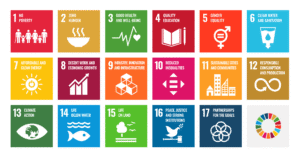
In a world where work and lifestyle are rapidly evolving, the concept of the freelance visa is gaining unprecedented attention. Nearly half of the global workforce now comprises freelancers, a testament to the shifting paradigms of employment. This blog delves into the burgeoning trend of freelance visas, their benefits, and the growing allure of the digital nomad lifestyle. We will also explore how countries like Germany and Dubai are becoming hotspots for freelancers seeking both professional fulfillment and cultural exploration.
Understanding the Freelance Visa
A freelance visa is a specialized type of visa that permits individuals to work independently in a foreign country. Unlike traditional work visas tied to a specific employer, freelance visas offer the flexibility to work for multiple clients or projects. This flexibility is particularly appealing in today’s gig economy, where freelancing and remote work are increasingly common. Freelance visas not only provide the freedom to work from anywhere but often pave the way for long-term residency and even citizenship. For example, Germany’s freelance visa program can lead to permanent residency after five years, offering a stable path for freelancers to establish a life abroad.
The Surge in Freelance Visa Popularity
The interest in freelance visas is skyrocketing, as evidenced by the 467% increase in search volume for “freelance visa Dubai” over the past five years. Dubai, known for its business-friendly environment and vibrant lifestyle, has become a magnet for freelancers worldwide. Similarly, the search for “digital nomad visa” has surged by 3400%, indicating a massive shift towards location-independent work styles. The appeal of blending travel with work is enticing a growing number of professionals to explore the world while continuing their careers.
Digital Nomad Lifestyle
The digital nomad lifestyle, heavily popularized on social media platforms like Instagram with over 4.3 million posts under #digitalnomad, represents more than just a trend. It signifies a new way of life where work, travel, and flexibility merge seamlessly. Digital nomads often choose their destinations based on the ease of obtaining a visa and the quality of life offered by the host country. This lifestyle allows individuals to experience diverse cultures, broaden their perspectives, and enjoy a sense of freedom that traditional office-bound jobs cannot provide.
The Global Response to Freelancers
Recognizing the economic and cultural benefits brought by freelancers, many countries have established or expanded their freelance visa programs. As of January 2024, 43 countries offer digital nomad visas, a significant increase from just three in 2020. These programs are not only attracting global talent but also fostering multicultural communities and boosting local economies. Countries with freelance visa programs are adapting their infrastructures and services to cater to this new wave of global workers, offering co-working spaces, networking events, and support services tailored to the needs of digital nomads.
Challenges and Considerations
While the freelance visa offers numerous opportunities, it also comes with its challenges. Navigating visa regulations, managing taxes across jurisdictions, and ensuring a steady workflow can be daunting. Additionally, freelancers must consider factors like healthcare, insurance, and local living conditions. Effective planning and resourcefulness are key to overcoming these challenges and making the most of the freelance visa experience.
The Future of Freelance Visas
The future of freelance visas looks promising as more countries recognize the value of attracting skilled, independent professionals. This trend is likely to continue, with nations refining their policies to make their environments even more appealing to freelancers. Technology, a crucial enabler of the digital nomad lifestyle, will continue to play a pivotal role. Advancements in digital connectivity and collaboration tools will further empower freelancers to work efficiently from any part of the world.
The evolving landscape of work will also see a shift in how freelancers and digital nomads are perceived both by society and governments. This could lead to more supportive legal frameworks, tax incentives, and social security benefits tailored to the unique needs of freelancers. The potential of remote work hubs, combined with local cultural experiences, is an exciting prospect for countries looking to diversify their economies and foster global connections.
Moreover, the rise of freelancers is not just a boon for individuals seeking flexibility but also for companies looking to tap into a global talent pool. This symbiosis between freelancers and businesses could redefine traditional employment models, making freelance visas an integral part of the global workforce strategy.
Conclusion
The rise of freelance visas marks a significant shift in the global workforce and lifestyle choices. Countries like Germany and Dubai are at the forefront of this change, offering opportunities for freelancers to work and live in dynamic environments. As the world becomes more interconnected and flexible work arrangements become the norm, the freelance visa stands as a gateway to new possibilities and adventures. For those ready to embrace a life of exploration and independence, the freelance visa offers a unique and fulfilling path.
Read latest blog: theContenting.com





